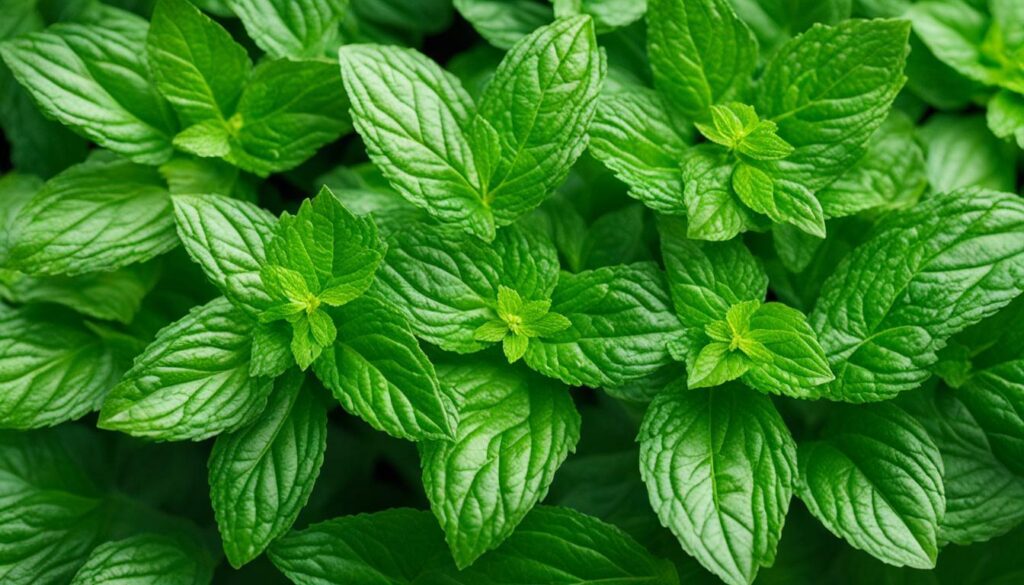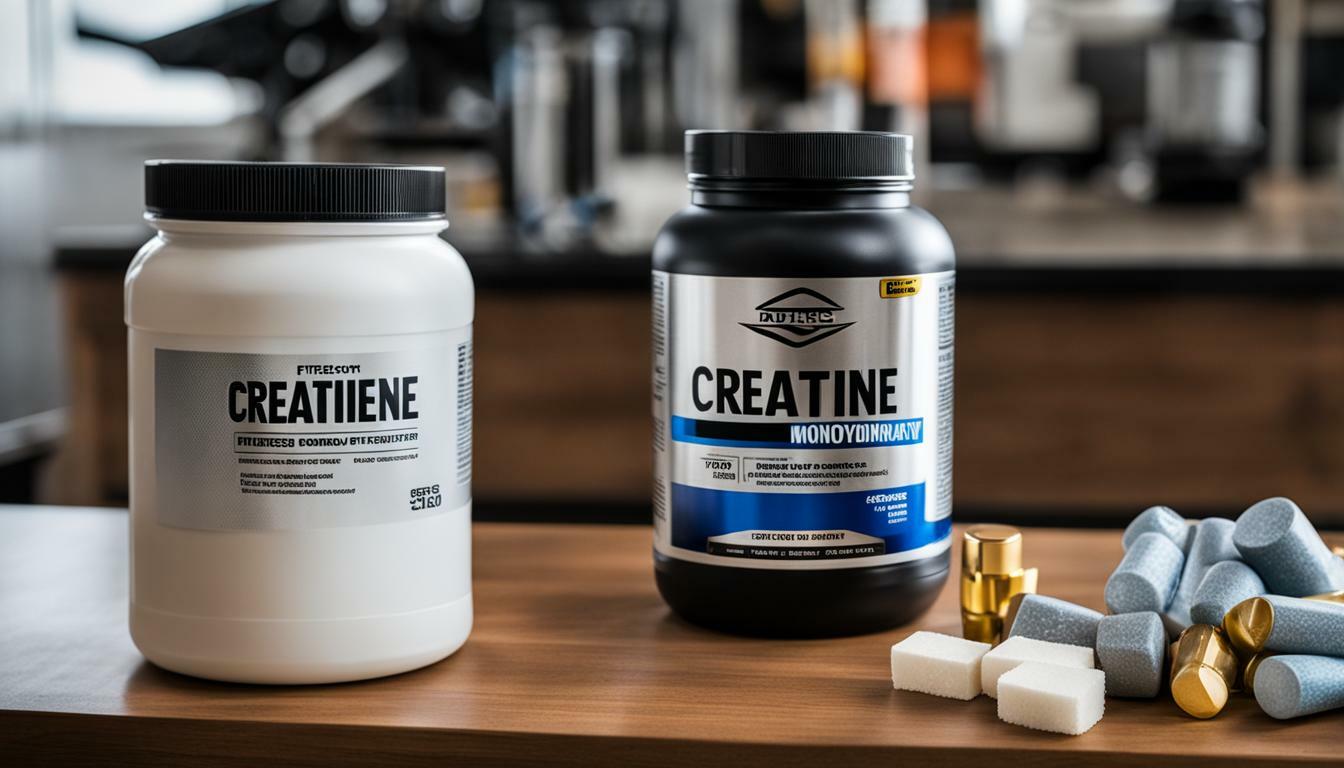Peppermint and spearmint oils are both derived from different plants and have distinct characteristics and uses in various applications. Peppermint oil is extracted from the leaves and stems of the peppermint plant, while spearmint oil is derived from the spearmint plant. These oils are widely known for their refreshing aromas and are commonly used in cooking, aromatherapy, and personal care products.
- Peppermint oil has a stronger smell and flavor compared to spearmint oil, thanks to its high menthol content.
- Peppermint oil is often used for its pain-relieving properties, while spearmint oil is known for its calming effects.
- Both oils can be used in cooking, aromatherapy, and personal care products.
- Peppermint oil may cause skin irritation in some individuals, so it’s important to perform a patch test before use.
- The choice between peppermint and spearmint oil ultimately depends on personal preference and specific needs.
Characteristics and Flavors of Peppermint and Spearmint Oil
Peppermint oil is known for its strong menthol aroma and intense, cooling flavor, whereas spearmint oil has a milder scent and a more subtle, sweet taste. The distinct characteristics of these oils make them popular ingredients in various products and applications.
Peppermint oil, with its potent menthol content, offers a refreshing and invigorating scent. Its aroma is often described as sharp and minty, providing a sense of clarity and alertness. This vibrant fragrance makes it a common choice for aromatherapy, as it can help stimulate the senses and promote mental focus.
In contrast, spearmint oil exudes a gentle and soothing scent. It has a slightly sweet aroma, reminiscent of fresh herbs, which makes it enjoyable and calming. The delicate fragrance of spearmint oil is often utilized in aromatherapy to promote relaxation, reduce stress, and uplift mood.
When it comes to taste, peppermint oil delivers a powerful and cooling sensation. It provides a refreshing burst of flavor that is commonly used in culinary creations, such as desserts, beverages, and even savory dishes. The strong, minty taste of peppermint oil adds a distinctive twist to recipes, enhancing their overall appeal.
On the other hand, spearmint oil offers a more subtle and sweet flavor. Its gentle taste is often used in a variety of culinary applications, including desserts, teas, and sauces. Spearmint oil can add a touch of freshness and pleasant aroma to dishes without overshadowing other ingredients.
Overall, the differences in characteristics and flavors between peppermint and spearmint oil provide unique sensory experiences. Whether you prefer the invigorating and cooling properties of peppermint or the calming and mild qualities of spearmint, both oils have their own distinctive appeal.
| Peppermint Oil | Spearmint Oil |
|---|---|
| Strong menthol aroma | Milder scent |
| Intense, cooling flavor | Subtle, sweet taste |
| Refreshing and invigorating | Gentle and soothing |
| Stimulates mental focus | Promotes relaxation |
| Used in cooking and aromatherapy | Used in cooking and aromatherapy |
Related Quotes:
“The strong, minty scent of peppermint oil instantly awakens my senses and helps me focus during long work sessions.” – John, aromatherapy enthusiast.
“I love using spearmint oil in my tea. Its soothing aroma and subtle taste create a relaxing experience, perfect for winding down after a hectic day.” – Sarah, herbal tea aficionado.
Benefits of Peppermint Oil
Peppermint oil offers a range of benefits, including its ability to relieve pain, aid digestion, boost concentration, and alleviate headaches. Its main active ingredient, menthol, provides a cooling and soothing effect that can help reduce muscle aches and soreness when applied topically. This makes it a popular choice for massage oils and ointments.
Additionally, peppermint oil has been shown to support healthy digestion by relaxing the muscles of the gastrointestinal tract. It can help relieve symptoms such as bloating, indigestion, and stomach discomfort.
In terms of mental focus, peppermint oil has a stimulating effect on the mind, helping to improve concentration and cognitive function. Its invigorating aroma can enhance alertness and mental clarity, making it useful for studying or during long work hours.
Furthermore, peppermint oil has been known for its ability to alleviate headaches and migraines. Its cooling sensation and analgesic properties can provide quick relief when applied to the temples or forehead.
Table: Peppermint Oil Benefits
| Benefit | Description |
|---|---|
| Relieves pain | Provides a cooling and soothing effect on muscles, reducing aches and soreness. |
| Aids digestion | Helps relax the muscles of the gastrointestinal tract, relieving bloating and stomach discomfort. |
| Boosts concentration | Stimulates the mind, improving focus, alertness, and cognitive function. |
| Alleviates headaches | Provides quick relief for headaches and migraines when applied topically. |

Peppermint oil can be used in various ways, including aromatherapy, topical application, and as an ingredient in personal care products. However, it’s important to note that individuals with sensitive skin may experience irritation when using peppermint oil directly on the skin. It is recommended to dilute the oil with a carrier oil, such as coconut or jojoba oil, before applying to the skin.
In summary, peppermint oil offers numerous benefits, ranging from pain relief and improved digestion to enhanced concentration and headache relief. Its versatility and soothing properties make it a valuable addition to your natural health and wellness routine.
Uses of Peppermint Oil
Peppermint oil finds wide application in cooking, aromatherapy, personal care products, and even as a natural insect repellent. Its distinct flavor and scent make it a popular choice for enhancing the taste of candies, chocolates, teas, and baked goods. In aromatherapy, peppermint oil is known for its invigorating properties, helping to uplift the mood and provide a refreshing sensation. It can be used in diffusers, massage oils, or added to bathwater to create a spa-like experience.
In personal care products, peppermint oil is often included in shampoos, conditioners, and body washes for its cooling effect on the scalp and skin. It can help to relieve scalp itchiness and promote healthy hair growth. Peppermint oil’s antimicrobial properties also make it effective in natural mouthwashes and toothpaste, providing fresh breath and maintaining oral hygiene.
Additionally, peppermint oil has been found to repel insects such as mosquitoes and ants. By diluting the oil and applying it to the skin or using it as a spray, it acts as a natural alternative to chemical-based repellents. This makes it a great option for outdoor activities or when dealing with pesky bugs around the house.
Peppermint Oil Recipe: Cooling Foot Spray
- Ingredients:
- 10 drops of peppermint oil
- 1 cup of distilled water
- Spray bottle
- Instructions:
- Mix the peppermint oil with the distilled water in a spray bottle.
- Shake well to ensure the oil is evenly distributed.
- Spray the cooling foot spray onto clean feet for a refreshing and cooling sensation.
Peppermint oil offers a multitude of uses, from enhancing flavors in cooking to providing a rejuvenating experience in aromatherapy and personal care. Its versatility and natural benefits make it a staple in many households.
| Pros | Cons |
|---|---|
| Strong and refreshing flavor | Can cause skin irritation for some individuals |
| Invigorating aroma | May not be suitable for those with sensitive skin |
| Effective insect repellent | Should be used in moderation |

Spearmint oil provides various benefits, including its calming effects, mood-enhancing properties, stress-relieving capabilities, and potential to aid sleep. This refreshing oil has been used for centuries to promote relaxation and improve overall well-being.
One of the key benefits of spearmint oil is its ability to calm the mind and reduce stress. Its soothing properties help to alleviate anxiety and tension, providing a sense of calm and tranquility. Whether diffused in an aromatherapy diffuser or added to a warm bath, spearmint oil can help create a peaceful and serene environment.
In addition to its calming effects, spearmint oil is known for its mood-enhancing properties. It has been found to uplift the spirit and promote feelings of positivity and happiness. Whether inhaled or applied topically, spearmint oil can help improve mood and support emotional well-being.
Furthermore, spearmint oil has been traditionally used to relieve stress and aid in better sleep. Its soothing aroma has a relaxing effect on the body and mind, making it an ideal choice for those struggling with insomnia or restlessness. By promoting a sense of calm and relaxation, spearmint oil can help improve sleep quality and duration.
| Benefits of Spearmint Oil |
|---|
| Calming effects |
| Mood-enhancing properties |
| Stress-relieving capabilities |
| Potential to aid sleep |
Uses of Spearmint Oil
Spearmint oil has a wide range of uses, including its incorporation in cooking, aromatherapy, and personal care products, owing to its soothing and refreshing attributes. The subtle and pleasant scent of spearmint oil makes it a popular choice in culinary applications. It can be added to beverages, desserts, and savory dishes to provide a fresh and minty flavor. Spearmint oil is also known for its ability to aid digestion and relieve stomach discomfort.
In aromatherapy, spearmint oil is often used to promote relaxation and uplift the mood. It has a calming effect that can help reduce stress and anxiety. Adding a few drops of spearmint oil to a diffuser or inhaling it directly can create a soothing and peaceful atmosphere. It is also commonly used in massage oils and bath products to induce a sense of tranquility.
Furthermore, spearmint oil is a popular ingredient in personal care products, particularly those aimed at oral hygiene. Its natural antiseptic properties make it a valuable addition to toothpaste, mouthwash, and breath fresheners. Spearmint oil is known to provide a refreshing and cooling sensation, leaving the mouth feeling clean and minty fresh.
Table 1: Common Uses of Spearmint Oil
| Application | Uses |
|---|---|
| Cooking | Flavoring beverages, desserts, and savory dishes |
| Aromatherapy | Promoting relaxation and reducing stress |
| Personal Care | Oral hygiene products for fresh breath |

While Peppermint and Spearmint Oil offer numerous benefits, it is important to be aware of possible side effects, such as skin irritation, allergic reactions, and sensitivity in individuals with certain health conditions.
Peppermint Oil, with its high menthol content, can be a potent irritant for sensitive skin. It is advised to perform a patch test before using it topically, especially for those prone to allergies or with pre-existing skin conditions. If any redness, itching, or irritation occurs, it is recommended to discontinue use.
Similarly, Spearmint Oil, although milder compared to Peppermint Oil, may still cause skin sensitivity in some individuals. It is always best to dilute the oil with a carrier oil, such as almond or coconut oil, before applying to the skin to minimize the risk of adverse reactions.
Furthermore, both oils should be used with caution by individuals with certain health conditions. Peppermint Oil can potentially worsen symptoms in people with gastroesophageal reflux disease (GERD) or gastric ulcers. Spearmint Oil, on the other hand, may interfere with certain medications, such as anticoagulants or hormone therapy. It is advisable to consult a healthcare professional before using these oils if you have any underlying health issues or are taking medications.
In summary, while Peppermint and Spearmint Oil can be valuable additions to your natural remedies, it is essential to consider the potential side effects. Always use these oils in moderation, perform patch tests, and seek professional advice if you have any concerns or pre-existing health conditions.
Conclusion
In conclusion, both Peppermint and Spearmint Oil have unique characteristics, benefits, and uses, making them valuable additions to various aspects of life.
Peppermint Oil, with its strong scent and flavor, derived from its high menthol content, offers a range of benefits. It is known for its pain-relieving properties, making it a popular choice for soothing muscle aches and headaches. Additionally, Peppermint Oil has been found to improve digestion and enhance mental focus. Its invigorating aroma and cooling sensation provide relief from nasal congestion and respiratory issues. However, individuals with sensitive skin should use caution as Peppermint Oil may cause irritation.
On the other hand, Spearmint Oil has a milder scent and taste compared to Peppermint Oil. It is renowned for its calming and mood-enhancing effects, making it a suitable choice for reducing stress and anxiety. Spearmint Oil is also believed to promote better sleep and relaxation. Its refreshing qualities make it a popular ingredient in personal care products, such as soaps and shampoos. Furthermore, both Peppermint and Spearmint Oil can be used in cooking to add a burst of minty freshness to various dishes.
When selecting between Peppermint and Spearmint Oil, it ultimately comes down to personal preference and individual needs. Whether you seek pain relief and a mental boost or a calming and soothing effect, both oils offer unique benefits. However, it is important to note that before incorporating these oils into your routine, it is advisable to conduct a patch test and consult with a healthcare professional, especially if you have any underlying health conditions or concerns.
FAQ
What are the key differences between Peppermint and Spearmint Oil?
Peppermint and Spearmint Oil have distinct differences in their characteristics, flavors, and uses. Peppermint has a stronger smell and flavor with high menthol content, while spearmint has a milder scent and taste.
What are the benefits of using Peppermint Oil?
Peppermint Oil has various benefits, including pain relief, improved digestion, enhanced mental focus, and alleviation of headaches and migraines.
What are the benefits of using Spearmint Oil?
Spearmint Oil has calming and mood-enhancing effects, relieves stress and anxiety, and promotes better sleep.
What are the uses of Peppermint Oil?
Peppermint Oil can be used in cooking, aromatherapy, personal care products, and as a natural insect repellent.
What are the uses of Spearmint Oil?
Spearmint Oil can be used in cooking, aromatherapy, personal care products, and it has soothing and refreshing qualities.
Are there any potential side effects of using Peppermint and Spearmint Oil?
Both oils may cause skin irritation, allergic reactions, and sensitivity in individuals with certain health conditions.
 Skip to main content
Skip to main content


